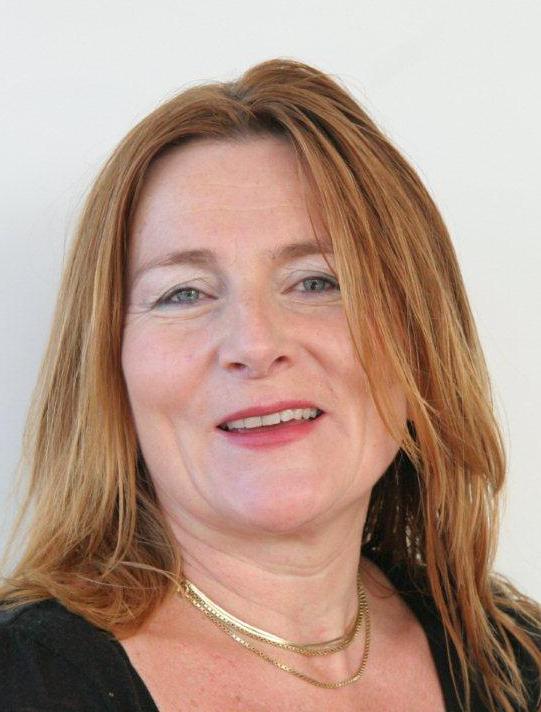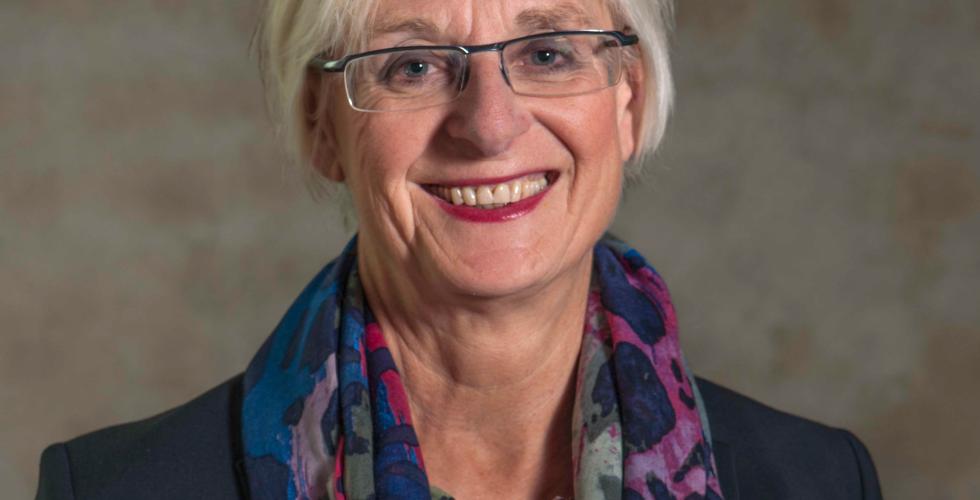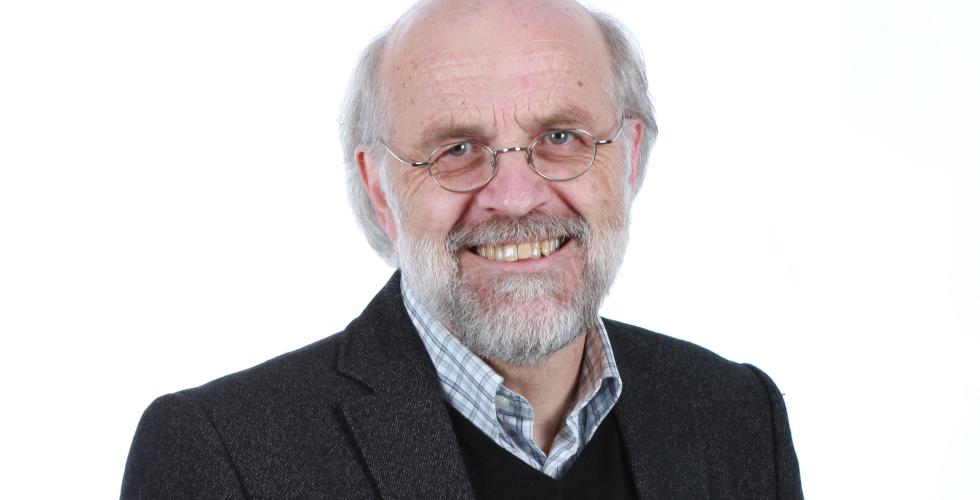Disappointed about NTNU’s lack of gender perspectives
Perspectives on gender and diversity are not addressed at all in NIFU’s evaluation of the extensive changes at NTNU.
“It’s surprising that these perspectives are not included, especially when we know the state of gender and diversity within the sector,” says Ingrid Guldvik, Deputy Chair of the KIF Committee.

Last year, when NTNU issued the call for tenders, perspectives on gender, gender equality and diversity were not included among the topics to be evaluated. Nor have these perspectives been included since NIFU won the commission. The deputy chair of the KIF Committee is not pleased with this situation.
“The fact that gender, gender equality and diversity issues are always given low priority is an enduring problem. Or to say it another way: These perspectives are seldom included as relevant approaches in an evaluation,” says Guldvik, who is also a professor and dean at Lillehammer University College and holds a doctoral degree in political science.
“These perspectives should not come ‘in addition’ to other things or be addressed ‘later’. They should be developed as part of the evaluation. Gender and diversity perspectives will lead to knowledge that enhances quality within the sector and serves as the basis for diverse membership in management groups and a good working environment,” says Guldvik.
The structural reform in the sector is an extensive, lengthy process – a large number of institutions in the higher education sector have been merged into fewer and larger universities and university colleges. As a result of the merger, NTNU is now Norway’s largest university.
However, Guldvik believes that the sector can do a better job of viewing these change processes as an opportunity, rather than an obstacle, when it comes to placing gender and diversity higher on the agenda.
“After all, the goal of the merger processes is higher quality in education and research. If you believe that diverse research and management groups are a plus, then you must take gender equality and diversity into account in these types of processes,” she says.
NIFU: The main goal is to evaluate the employees’ participation in the merger
Agnete Vabø, a senior researcher at NIFU, is the project manager for the evaluation of NTNU’s merger process, which NIFU is conducting in cooperation with Technopolis. She understands Guldvik’s criticism, but emphasizes that her research group must comply with the mandate and carry out the assignment they have been given.
“Gender and diversity perspectives were not aspects of this evaluation from the outset, and it’s important to note that it costs money to include them. Quite simply, we have not been given the resources and money to include those perspectives,” says Vabø.
“This evaluation primarily looks at participation of the employees. According to the Working Environment Act, those who are affected by this type of merger process have a right to be heard. This is among the most important aspects of the follow-up research,” explains Vabø.
On this basis, Vabø’s research group has contacted scientific and administrative employees, as well as students, to talk with them about how the merger has affected them. A report on the findings of this study will be presented at a conference in September.
“An important aspect of our research is to identify some special Norwegian features of this merger in light of Norwegian experiences and analyse the process in a comparative Nordic perspective,” says Vabø.
“We will complete several sub-deliveries during the project, and everything is not clarified yet.”
Vabø does not rule out that gender and diversity could be included in the research at a later time, which is planned to continue up to 2019. She emphasizes that she recognizes these are important perspectives.
“It’s positive that the KIF Committee addresses gender and diversity issues, follows them up and ensures that these perspectives are given consideration. They are important issues, and time and again we see that it’s important to promote gender balance and diversity. But of course we must carry out the assignment we’ve been given. In particular, we must comply with the mandate and use the resources allocated for the evaluation in accordance with the guidelines.”

“NTNU must accept criticism”
Earlier this year, Kifinfo.no interviewed rectors and pro-rectors at several of the merged universities in connection with the major structural reform in the sector. There was widespread agreement that gender equality work must not be ignored in times of restructuring and major change. Despite this, gender equality is not mentioned in NTNU’s call for tenders for the evaluation project.
“Gender equality is an issue we only address when it’s a specific item on the agenda, but it gets pushed aside in the course of daily activities,” says Guldvik.
“We see again and again that these issues are not automatically a part of our thinking – neither in those who commission the projects nor in those who bid on the projects.”
She emphasizes that she is mainly surprised at NTNU as the commissioning institution.
“It’s primarily NTNU, not NIFU, that should accept criticism for this situation. There are so many phases and opportunities for reflection during the process of commissioning a project of this type, and it’s surprising that nobody at any point in time has stopped and noticed that something is missing,” she says.
“Should the sector do a better job of mainstreaming gender and diversity perspectives so that they are included in all evaluations of reorganization processes as a matter of course?”
“Absolutely! And in fact, including gender and diversity perspectives is already in the guidelines from the central authorities,” Guldvik points out.
“It’s a sectoral responsibility to actively work to promote equality between the genders. This applies to integrating gender perspectives when relevant in all evaluations when the goal is to acquire knowledge about what is happening in our sector. This is why I find it alarming that these perspectives are not mentioned at all in this project,” says Guldvik.
Kifinfo has not been successful in its attempt to obtain comments from NTNU’s management.
Translated by Connie Stultz.
Changes in the higher education sector
In 2014, the Norwegian Government announced that it would launch a process to consolidate the sector’s resources into fewer, but stronger universities throughout the country. As from 1 January 2016, a number of institutions have been merged. On 1 January 2016, the Norwegian University of Science and Technology was merged with Gjøvik University College, Sør-Trøndelag University College and Ålesund University College, resulting in Norway’s largest university: the Norwegian University of Science and Technology (NTNU).
Follow-up research
NIFU received the commission to evaluate NTNU’s merger process. The research will continue up to 2019, and the main topic is participation of the employees in the merger process. Senior Researcher Agnete Vabø is the project manager for the evaluation, and NIFU is carrying out the assignment in cooperation with Technopolis.
In a letter to Rector Gunnar Bovim of NTNU, the KIF Committee asks that the evaluation also address how activities related to gender and gender equality will be affected and addressed by the merger process. Because the structural reform involves a large number of higher education institutions in Norway, the KIF Committee believes that the evaluation of NTNU will have both local and national interest. (Read the letter in the link below – in Norwegian only.)
Conference: “Structural reform in the higher education sector: Promising for gender equality?”
NTNU and the KIF Committee jointly organized the conference “Structural reform in the higher education sector: Promising for gender equality?”, which was held in Trondheim on 6 June 2016.



